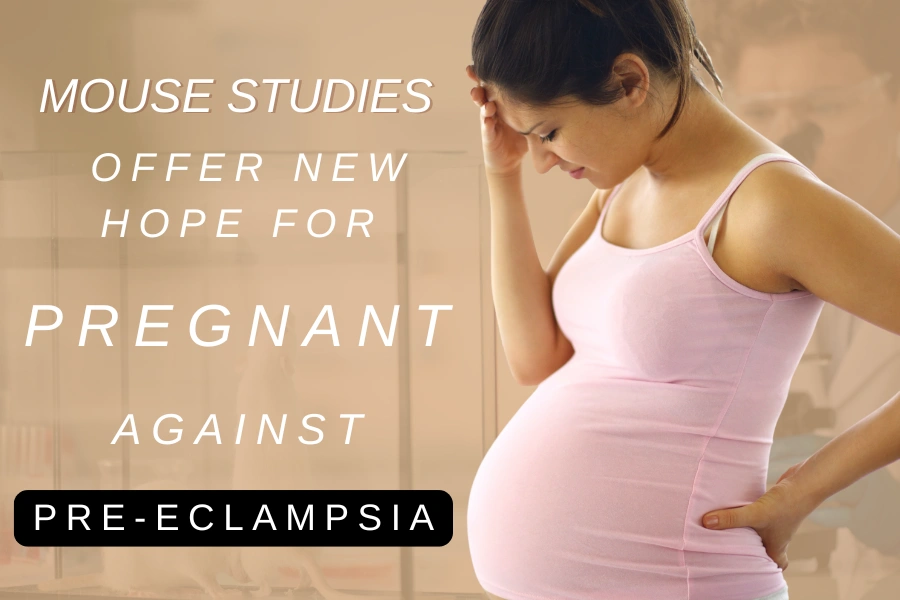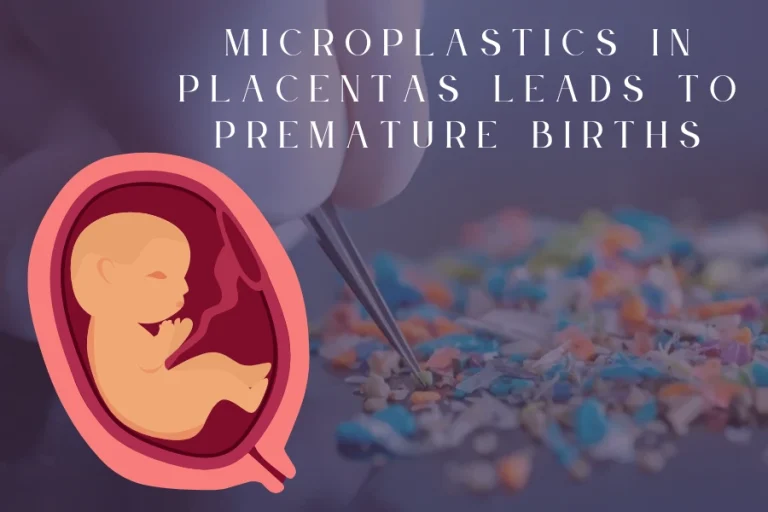
A new study published on December 11th in the journal Nature shows that mouse studies offer new hope for pregnant women against pre-eclampsia. The injections based on that vaccine platform declined the risk of preeclampsia in lab mice.
Pre-eclampsia is a pregnancy disorder that usually occurs after the 20th week of pregnancy. It is a condition in which the mother’s blood pressure becomes abnormally high and can affect the supply of oxygen and nutrients to the fetus through the placenta. It can be dangerous for both mother and fetus if left unchecked. Preeclampsia is caused by interrupted or insufficient blood flow to the placenta. When blood flow to the placenta is insufficient, this can lead to high blood pressure in the mother and reduce the amount of oxygen and nutrients supplied to the fetus. Preeclampsia is one of the dangerous causes of stillbirth and premature birth in the world. This dangerous complication of pregnancy occurs in about 3-5% of pregnancies, which means that about 3 to 5 out of every 100 pregnant women may develop the condition. If a pregnant woman is diagnosed with preeclampsia early in pregnancy, both the mother and the baby face increased health risks. Serious health problems can occur for both mother and baby, and in some cases, can lead to death for either mother or baby. There is no cure for preeclampsia. Therefore, current measures can only treat the symptoms of the disease, such as: taking blood pressure lowering medication to control the mother’s high blood pressure; bed rest to reduce stress on the body; and premature delivery (even though the fetus may not be mature enough) to protect the mother’s health. This is sometimes done when the mother’s condition becomes dangerous and continuing the pregnancy could be harmful to the mother and fetus.
However, Kelsey Swingle, a doctoral student in the lab of Michael Mitchell, feels these treat symptoms are not enough for this fatal pregnancy complication. Swingle claims that inadequate health care for women is a serious societal problem. In addition, the complex health problems that pregnant women face (conditions that are not effectively treated) are also major problems in medical research, and better scientific solutions are needed to solve them.
Penn Engineers have recently developed a new technology to improve the detection or treatment of the condition. The same technology behind COVID vaccines could be able to protect the mother and babies from a pre-eclampsia. Swingle has previously conducted a successful study to test the ability of LNPs to deliver mRNA into cells. These particles are the same molecules that help mRNA in COVID-19 vaccines get into cells. This study focused on whether LNPs could reach the placenta of pregnant mice.
In the latest study, Swingle tested 98 different LNPs to assess their ability to reach the placenta, reduce high blood pressure, and enhance vasodilation in pregnant mice with preeclampsia. Ultimately, one LNP proved to be the most effective, increasing mRNA delivery into the placenta by more than 100 times compared to an FDA-approved LNP formulation. This demonstrates that this LNP is very effective at delivering mRNA to the placenta. This LNP successfully delivered therapeutic mRNA that reduced maternal blood pressure during pregnancy and improved fetal health, as well as placental blood circulation.
When the mice were born, Swingle noticed that they weighed more, indicating that both mother and baby were healthy. This is a positive sign that the drug could help improve the health of both mother and baby during pregnancy.
Swingle is excited about this result because it could lead to a real treatment for preeclampsia in pregnant women in the near future.
Before being able to conduct experiments with pregnant mice, Swingle had to rebuild his research facility, determining how to induce preeclampsia in a mouse model, a process that had not been well studied before. Creating this mouse model is an important step in researching and finding treatments for preeclampsia, as well as other reproductive health problems.
Swingle’s research not only opens up hope for a cure for preeclampsia, but could also spur the development of mRNA therapies using LNPs for other reproductive health problems.
This is a significant advance in medicine, as there is currently no effective treatment for preeclampsia, and this research could significantly improve the health of mothers and fetuses in the future.
In this research, pre-eclampsia was experimented on pregnant mice. After the research team screened and analyzed their 98 LNP library to determine which would be the best at delivering mRNA to the placenta. Then, researchers took one LNP forward and injected the pre-eclamptic mice with the minimum effective dose once at day 11 of their 20-day gestation. This injection cured pre-eclamptic mice until the end of the mice pregnancy, but now the team have to do more experiments to know how many doses would be needed to treat the condition in larger animals and humans.1
- Swingle, K. L., et al. (2024). Placenta-tropic VEGF mRNA lipid nanoparticles ameliorate murine pre-eclampsia. Nature. doi.org/10.1038/s41586-024-08291-2. ↩︎






